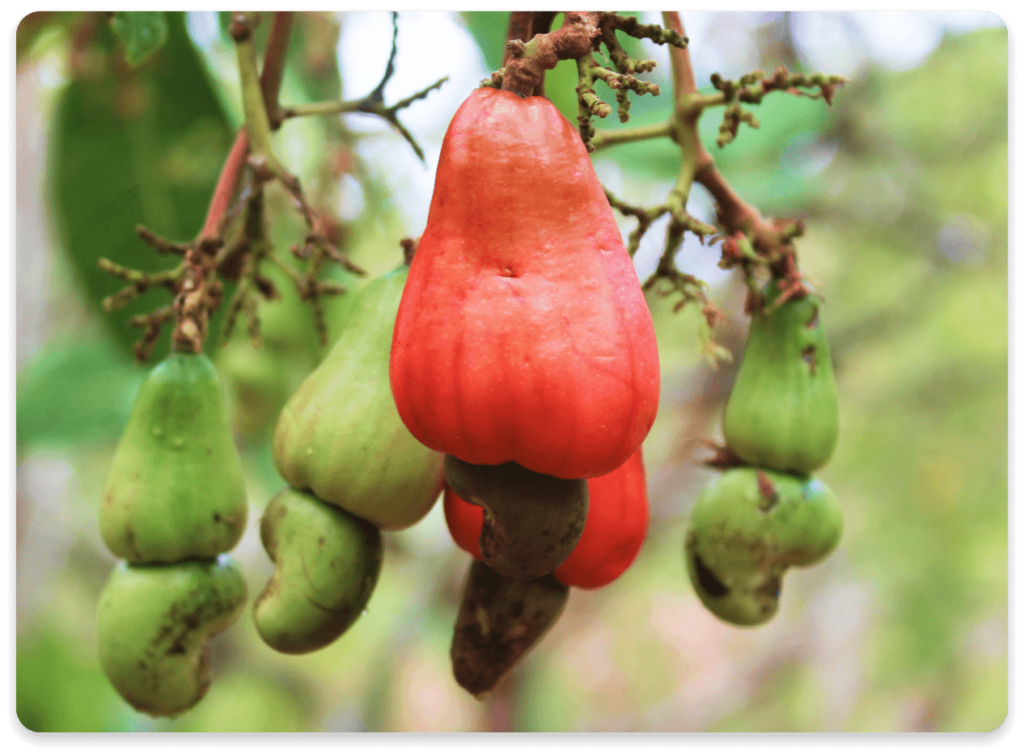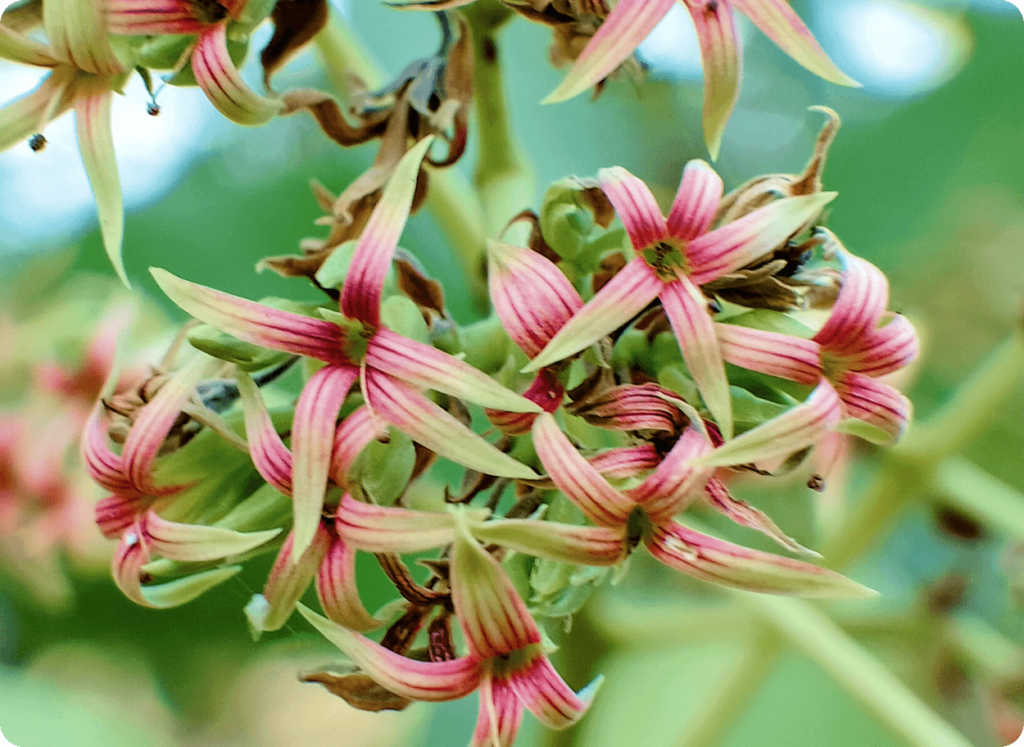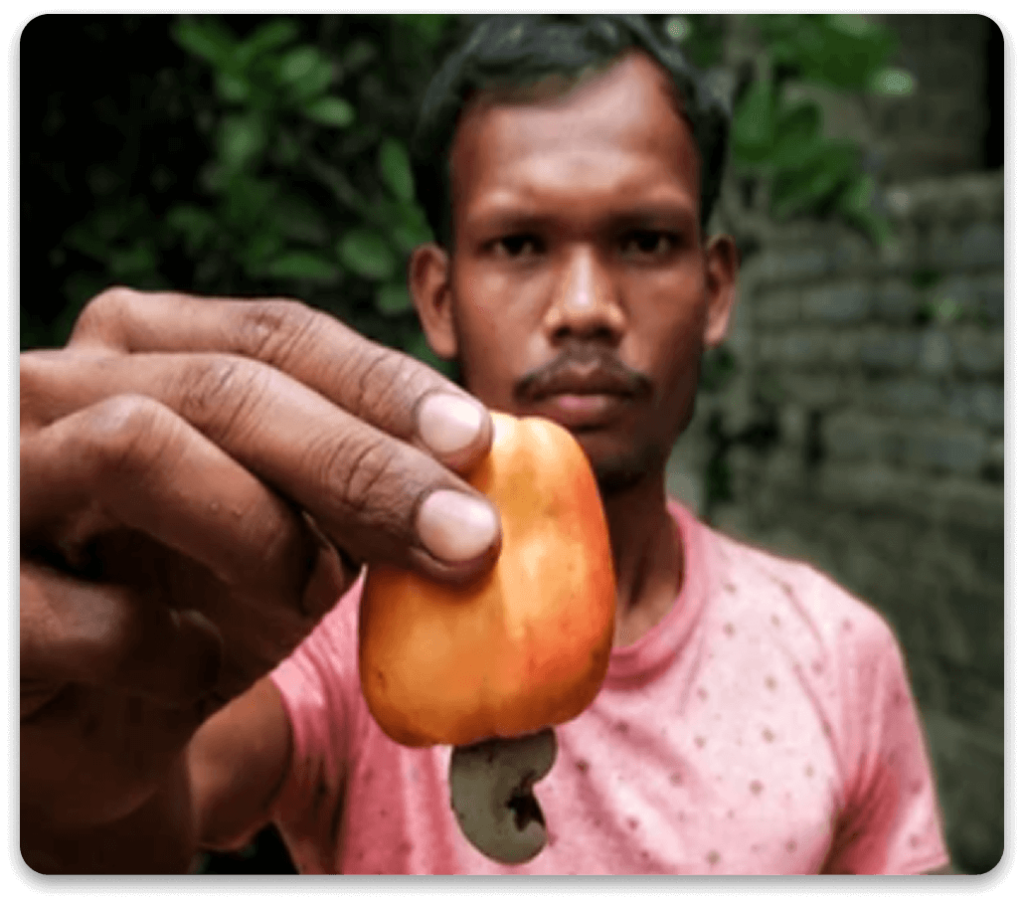

Cashew plants require various nutrients for their optimal growth and production such as nitrogen, phosphorus, potassium, calcium and magnesium.
Nitrogenous fertilisers like urea or ammonium sulfate are commonly applied to supplement nitrogen levels in the soil.
Phosphatic fertilisers such as single superphosphate or diammonium phosphate are commonly used to supply phosphorus to the soil.
Potassium-based fertilisers like potassium chloride or potassium sulfate are applied to meet the potassium requirements of cashew trees.
Lime or calcium-containing fertilisers like calcium nitrate can be used to address calcium deficiencies in the soil.
Magnesium sulfate or dolomite lime can be used to supplement magnesium levels in the soil.
Sulphur-containing fertilisers like ammonium sulfate or gypsum are used to supply sulphur to the soil.
Micronutrient-rich fertilisers or foliar sprays are utilized to address micronutrient deficiencies.


During the initial stage of cashew tree growth, when young plants establish their root systems, regular watering is necessary to support root development and ensure proper establishment. Adequate soil moisture should be maintained to encourage the healthy growth and survival of young cashew trees.

Cashew trees require water during the vegetative growth stage to support leaf development, shoot growth and canopy formation. While cashew trees are somewhat drought-tolerant, it is important to provide regular irrigation, especially during dry spells or periods of inadequate rainfall, to maintain optimal growth and productivity.

As cashew fruits mature, the water requirement decreases. It is important to reduce irrigation during this stage to allow the nuts to ripen properly and to avoid over-watering, which can lead to quality issues and disease susceptibility.

Water availability is crucial during the flowering and fruit development stage of cashew trees. Insufficient water during this period can lead to poor pollination, a reduced fruit set and smaller nut size. Adequate soil moisture should be maintained to support proper flower and fruit development.
Cashew trees benefit from supplemental irrigation in areas with inadequate rainfall or during dry periods. Cashews can benefit from deep watering to encourage deep-root development and improve drought tolerance.
It is important to note that excessive water can lead to waterlogged conditions, which can be detrimental to cashew trees. Therefore, proper drainage should be ensured to prevent waterlogging and maintain a well-drained soil environment.
Districts: Ganjam, Mayurbhanj,
District: Bhagalpur
District: East Singhbhum
District: Ranchi
